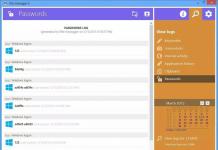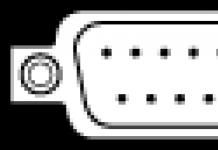Google Scholar or Google Academy is a free full-text search engine for scientific publications in all formats and disciplines. The project was launched in November 2004. Today, this system is an indispensable tool for any researcher.
The Google Academy repository contains information from many peer-reviewed online journals of the largest scientific publishers in Europe, America and Russia, archives of preprints, publications on the websites of universities, scientific societies and other scientific organizations. The system searches across various disciplines and sources: articles, abstracts, books, abstracts and judicial opinions from academic publishers, professional societies, online repositories, universities and other websites. "Google Scholar" searches for scientific research from all over the world, looking for articles, including in Russian.
The advertising slogan of the Google Academy - "standing on the shoulders of giants" - is taken from the well-known saying of Isaac Newton "If I have seen further than others, it is because I stood on the shoulders of giants", as a sign of respect for scientists who have made an incommensurable contribution to the development of science on over the centuries and laid the foundation for modern discoveries and achievements.
In terms of its functionality, the Google Academy is similar to such specialized scientific search engines, electronic archives, article and link search tools as Scirus, Science Research Portal, Windows Live Academic, Infotrieve - artical finder, CiteSeerX, ResearchIndex, Scientopica and GetCITED. Not least, it allows you to work for free, unlike similar sites that provide access to publications after a paid subscription, such as Scopus and Web of Science.
The following features of Google Scholar can be distinguished:
- search for scientific literature from any place convenient for you;
- allows you to calculate the citation index of publications and find works, citations, authors and articles containing links to those that have already been found;
- the ability to search for the full text of the document both online and through libraries;
- view the latest news and events in any field of research;
- you can create a profile of a public author with links to your publications.
So, let's take a closer look at the available functions of this search engine.
1. Google Scholar Search
The search for a full-text document is carried out not only among publications available online, but also in libraries or paid resources. However, some publishers do not allow the Academy to index their journals.
Search results are ranked by relevance. In accordance with this algorithm, full-text documents are included in the statistics, taking into account the rating of the author or publication that published it and the number of citations from the publication. Thus, the most popular articles are displayed in the first links.
Here you can also sort documents by date and citation.

There is also an advanced search that allows you to sort publications by a specific word / phrase, title, author / edition, for a specific period.
2. Quoting and linking
To use this feature, you must create a public Google Scholarship profile, complete it, and upload the relevant publications. Then, when you request your name in the search engine, the publications you uploaded will appear. Perhaps this will help you make useful contacts with colleagues who study the same issues around the world.
This service will quickly and easily find your articles, regardless of their number and the presence of co-authors.

It is possible to add not only single, but also groups of articles. Citation rates are calculated and updated automatically as the service discovers new citations of your work on the web.
It should be borne in mind that the system does not distinguish between namesakes and, conversely, identical links received from different/mirror servers are treated as different, just like different versions of links to the same work. Therefore, significant efforts and time are required for additional processing of the results of determining citation.
When forming a reference, you will have the opportunity to choose one of the international or Russian standards for the design of bibliographic references.
3. Availability of a guide for webmasters
This documentation describes the technology for indexing websites with scientific articles from Google Scholar. It is written for webmasters who would like to include their documents in the "Academy" search results.
Detailed technical information will also be useful to individual authors who have the opportunity to publish work on their website and add a link to it on the Google Scholarship publishing page.
With this service, you can increase the worldwide relevance and accessibility of content by working with scientific publishers to index peer-reviewed papers, dissertations, preprints, abstracts and technical reports from all areas of research in order to make them available on Google and Google Scholar ".
4. Metrics or indicators
This section allows you to quickly assess the presence and significance of recent articles in scientific journals, as well as analyze the relevance of topics for the author.
Here you can view the TOP 100 publications in multiple languages, sorted by their 5-year h-index and h-median. H5-index - h-index for articles published in the last 5 full years. H5-median is the median of the number of citations of publications that are included in the h5-index.
It is also possible to study publications in specific scientific fields. To do this, you just need to select the area of \u200b\u200bresearch that interests you. Here you can also select a subcategory for this area.
As of today, work with categories and subcategories is available only for English editions.

5. Library
Google Scholar uses information about digital library resources to create per-article links to library servers in search results. With the help of the database being created, the user can find the right book in the library closest to him.
The mission of the Google Academy is to collect scientific information from all over the world in one resource and organize its universality, accessibility and usefulness.
The problem of searching and collecting information is one of the most important problems in writing a scientific publication. Currently, the problem of having too much information that is not reliable, high-quality and relevant is relevant.
Thus, the relevance of the problem is determined by the contradiction between the large flows of information circulating in the modern world and the inability to quickly and efficiently search for it on the Internet.
When searching on the Internet, two components are important - completeness and accuracy. Usually this is all called in one word - relevance, that is, the correspondence of the answer to the question. Important indicators are the coverage and depth of the search engine, crawl speed and relevance of links (the speed of updating information in this database), search quality (the closer to the top of the list is the document you need, the better the relevance works).
The scientific search engine "Google Academy" is a resource that can solve the problem of finding information and has the ability to quickly and accurately sort it. Due to its advanced functionality, it allows you to find up-to-date, complete and reliable information in any field of research with a minimum investment of time. According to the statement of the creators, Google Scholar allows you to identify the most relevant scientific research from the entire mass of work carried out in the world.
The features of this scientific search system can leave a very prominent imprint on the processes of intellectual competition and even lead to certain changes in the general nature of scientific results and ideas that survive in the competition and determine the future of science.
This opportunity is invaluable for the development of scientific research. Since on the basis of the information received, the author can fully work on the originality and novelty of scientific research.
ONLINE Scientific Journal "Child and Society"
Publisher: International center for the childhood and education (ICCE)
Online ISSN: 2410-2644
Any scientific article is based on previously conducted research, therefore, when writing scientific papers, it often becomes necessary to refer to electronic resources - libraries of scientific articles. Google Academy (Google Academy), Cyberleninka (Cyberleninka) and other systems allow you to search for official scientific publications, without which any scientist is doomed to endlessly “reinvent the wheel”.
Where to find scientific articles
Searching for scientific articles is a process that requires attention. There is a lot of false information on the Internet, the use of which can easily distort the results of any study. Electronic resources provide great opportunities to comfortably find the information you need.
Let's figure out where and how to search for scientific articles on the Internet. There are certain sites for finding scientific papers - they are called scientific electronic libraries, catalogs of scientific articles or archives of scientific articles.
cyberleninka
Cyberleninka is a free Internet portal containing about one million officially published works of scientists, allowing you to search for scientific articles in all areas from psychology to jurisprudence. The convenient interface of Cyberleninka allows you to read and search online full-text scientific papers. It has an extensive rubricator by areas of activity. Cyberleninka is available from any mobile application. Also requires registration. A small disadvantage of CyberLeninka is the inability to download the text of the article directly from the resource.
Google Academy
Google Academy is a Russified portal for searching officially published articles from scientific journals and various publications. This is a free service where you can search and read full-text foreign and Russian articles for free. In addition, dissertations, monographs, and other works from various fields of science are available at Google Scholar. Some of the works are in the closed access of Google Academy. Access to such publications is possible for a fee. Google has citation links.
A small drawback of Google Academy is the abundance of pseudoscientific articles.
However, with a good command of the issue under study, you will be able to understand the quality of the work posted on the specified service. You can also register as an author and publish your work, as well as track their citation. You can also download some articles in PDF format.
eLybrary
The specified service is an extensive domestic database of articles, numbering more than 37 thousand scientific publications and about 15 million scientific papers. In 2005, the Russian Science Citation Index (RSCI) project was created on the eLybrary platform - a universal citation database similar to Scopus.
The database is available after registration. Registered users can not only search for articles, but also receive a subscription service to electronic publications in various fields of science.
On the portal, you can search the catalog of authors and journals, resort to the help of a thematic rubricator.
The library contains articles from Russian and foreign journals, which can be found in the public domain online.
There is a service for creating collections of papers on a specific topic, for example, in the field of jurisprudence, economics, medicine, psychology. There are citation links.
Scientific electronic library Scholar.ru
An extensive database of not only literature, but also abstracts, dissertations of scientists. Has a catalog of works by title, author's data, fields of activity. The advantage of the library is the ability to download texts of articles from journals. In addition, it is possible to set up a subscription to new arrivals on topics of interest to you - jurisprudence, medicine, economics and other sciences.
Search scientific articles with ScienceResearch.com
SciencereSearch is a worldwide article search service for major scientific journals and publishers, as well as scientific literature archives. The system does not require registration. There are descriptions of abstracts, dissertations.
The search is carried out by the title of the article, given by the author or keywords.
In journals on pedagogy
The SciencereSearch search engine will help you find articles on pedagogy, both in Russian and in most foreign languages of the world (English, German).
The service contains English-language instructions for use, translated into Russian.
The interface is convenient - the data is entered into a single search bar, after pressing the search button, a list of articles of interest is displayed, including those in psychological areas related to pedagogy.

in psychology journals
The site has the form of an advanced search, in the rubricator you can find a list of psychological areas of interest. The archive contains many English-language articles from psychology journals.

In defectology journals
To search for articles from defectology journals, you need to go to the "Health and Medicine" section, or enter the terms of interest in the "advanced search" option. The keywords you entered can be found in the text of the article or in the title.
in economics journals
To search for articles from a journal on economics, you also need to use the rubricator.
The strength of the service is the automatic translation of the English-language site into Russian, as well as the ability to download articles. The search engine allows you to find a lot of articles by foreign authors
The search engine provides a range of dates for publications that interest you. When you enter accurate data, the search engine produces a list of more accurate results.
in medical journals
The site contains many foreign articles on medicine, automatically translated into Russian. These articles can be read online or downloaded from the resource. The search engine gives a list of interesting publications of foreign authors.
Where to find scientific articles in English
English articles can be found using the SciencereSearch service described by us.
Google Scholar (Google Academy) Google Scholar Standing on the shoulders of giants Extensive search for scientific literature Maximum number of scientific journals in Russian Citation statistics Free resource (accessible from any computer) Google Scholar http://scholar.google.ru/ any language. To open the "Advanced Search" window, click on the arrow to the right of the search window. Google Scholar Information search The "advanced search" function allows you to specify the query. Google Scholar Search Results In the panel on the left, you can select the date of publication, sort documents by relevance or date of creation, you can include patents in the search. If you disable the "Show citations" function, the system will only show full-text documents. Google Scholar Search Results Next to each article there is citation information, a link to similar articles, to other versions of the article. By clicking on the "Cite" link, you will see a bibliographic description of the document in accordance with various styles. Google Scholar Create an account Create your account to connect additional features: to save search results, to create a list of your scientific papers and track their citations, etc. Find the "Login" link on the top panel. Google Scholar Create an account Google Scholar Create an account Fill out the form provided. You can use any email server to register (not just gmail.com). After registration, an e-mail will be sent with a link that you need to follow to activate your account. Google Scholar Working with your account Documents you find can be saved in your profile. To do this, click on the "Save" link located under the document. All information saved by you will be placed in the "My Library" section. Google Scholar Working with an account There is a special service for researchers: citing scientific papers. To set up, go to your account and enter information about yourself: place of work, keywords, university email address. An email will then be sent to you asking you to verify your address. In the letter, you need to click on the link "Verify email address". Google Scholar Account Management You can choose to allow or block public access to your profile. To add articles, click on the link "Actions" - "Add". Google Scholar Working with an account In the search box, enter the title of your article. Google Scholar Working with your account If you find your article, click on the "Add article" link. Then it will be uploaded to your profile. Google Scholar Working with your account If the imprint of an article is incorrect, you can correct it. Click on the title of the article for this. Google Scholar Working with an account In the window that opens, click on the "Edit" link and enter the correct data. Google Scholar Working with an account If you can't find your papers on the Internet, you can enter them manually. You can add not only articles, but also books, dissertations, patents. Google Scholar Metrics You can view citation metrics for a particular industry by clicking on the Metrics link on the Google Scholar start page. Google Scholar Indicators Journals are classified according to subject areas depending on the h-index. Thank you for your attention! Scientific Library named after E.I. Ovsyankina Information and analytical department Astakhova Tatyana Nikolaevna We are always ready to help you! Address: Nab. Sev. Dvina, 17, NArFU main building, 1st floor, room 1136 from 8.00 to 19.00 Saturday from 8.00 to 16.00 Tel. 21 89 49 (internal 13 49) Vkontakte groups: http://vk.com/elsdepartment, http://vk.com/club48673643
Google Academy is a freely available search engine that indexes the full text of scientific publications in all formats and disciplines. The release date in beta status is November 2004. The Google Scholar Index includes most of the peer-reviewed online journals in Europe and America from the largest scientific publishers. It is similar in function to the freely available Scirus systems from Elsevier, CiteSeerX and getCITED. It is also similar to subscription-based tools such as Elsevier at Scopus and Thomson ISI's Web of Science. Google Academy's advertising slogan, "Standing on the Shoulders of Giants," is a tribute to scientists who have contributed to their fields over the centuries, providing the foundation for new scientific advances.
Story
Google Scholarship arose out of a discussion between Alex Verstak and Anurag Acharya, both of whom then worked on building Google's core web index.
In 2006, in response to the release of Microsoft's Windows Live Academic Search, a potential competitor to Google Scholar, a citation import feature was implemented using bibliographic managers (such as RefWorks, RefMan, EndNote, and BibTeX). Similar features are also implemented in other search engines such as CiteSeer and Scirus.
In 2007, Acharya announced that Google Scholar had begun a program to digitize and host journal articles under publisher agreement, separate from Google Books, whose older journal scans do not include the metadata needed to search for specific articles in specific areas.
Features and Specifications
Google Scholar allows users to search for digital or physical copies of articles, whether online or in libraries. "Scientific" search results are generated using links from "full-text journal articles, technical reports, preprints, dissertations, books, and other documents, including selected web pages that are considered "scientific". Because most of Google's scientific search results are direct links For commercial journal articles, most users will only be able to access a brief abstract of the article as well as a small amount of important information about the article, and may have to pay to access the full article.Google Scholar is just as easy to use as a regular Google web search especially with the "Advanced Search" which can automatically narrow search results to specific journals or articles.The most significant keyword search results will be listed first, in order of author's ranking, the number of links that are associated with her and their relationship to other scientific literature, as well as the rating of publications of the journal in which she printed.
Through its "cited in" feature, Google Scholar provides access to abstracts of articles that cite the article being reviewed. It is this feature, in particular, that provides the citation index previously available only in Scopus and the Web of Knowledge. Through its "Related Articles" feature, Google Scholar presents a list of closely related articles, ranked primarily by how similar those articles are to the original result, but also by the importance of each article.
As of March 2011, Google Scholar is not yet available for the Google AJAX API.
Ranking algorithm
While most academic databases and search engines allow users to select one of the factors (such as relevance, number of citations, or date of publication) to rank results, Google Scholar ranks results using a combined ranking algorithm that acts as "researchers do, given full the text of each article, the author, the edition in which the article was published, and how often it has been cited in other scientific literature. Research has shown that Google Scholar places particularly high weight on the number of citations and words included in the title of a document. As a consequence, the first search results often contain highly cited articles.
Limitations and criticism
Some users consider Google Scholar comparable in quality and usefulness to commercial databases, although its user interface (UI) is still in beta.
A significant problem with Google Scholar is the lack of coverage data. Some publishers do not allow it to index their journals. Elsevier's journals were not included in the index until mid-2007, when Elsevier made most of its content on ScienceDirect available to Google Scholar in Google's web search. As of February 2008, the most recent years are still missing from the journals of the American Chemical Society. Google Scholar does not publish a crawl list of scientific journals. The frequency of its update is also unknown. However, it provides easy access to published articles without the hassle of some of the most expensive commercial databases.
Notes
- Hughes, Tracey (December 2006) "An interview with Anurag Acharya, Google Scholar lead engineer" Google Librarian Central
- Assisi, Francis C. (3 January 2005) "Anurag Acharya Helped Google's Scholarly Leap" INDOlink
- Barbara Quint: Changes at Google Scholar: A Conversation With Anurag Acharya Information Today, August 27, 2007
- 20 Services Google Thinks Are More Important Than Google Scholar - Alexis Madrigal - Technology - The Atlantic
- Google Scholar Library Links
- Vine, Rita (January 2006). Google Scholar. Journal of the Medical Library Association 94 (1): 97–9.
- (unavailable link)
- About Google Scholar. scholar.google.com. Archived from the original on March 29, 2012. Retrieved July 29, 2010.
- Google Scholar Help
- Official Google Blog: Exploring the scholarly neighborhood
- Joran Beel and Bela Gipp. Google Scholar's Ranking Algorithm: An Introductory Overview. In Birger Larsen and Jacqueline Leta, editors, Proceedings of the 12th International Conference on Scientometrics and Informetrics (ISSI’09), volume 1, pages 230-241, Rio de Janeiro (Brazil), July 2009. International Society for Scientometrics and Informetrics. ISSN 2175-1935.
- Joran Beel and Bela Gipp. Google Scholar's Ranking Algorithm: The Impact of Citation Counts (An Empirical Study). In André Flory and Martine Collard, editors, Proceedings of the 3rd IEEE International Conference on Research Challenges in Information Science (RCIS’09), pages 439-446, Fez (Morocco), April 2009. IEEE. doi: 10.1109/RCIS.2009.5089308 . ISBN 978-1-4244-2865-6.
- Bauer, Kathleen, Bakkalbasi, Nisa (September 2005) "An Examination of Citation Counts in a New Scholarly Communication Environment" D-Lib Magazine, Volume 11, No. 9
- Peter Brantley: Science Directly into Google O'Reilly Radar, July 3, 2007
Links
| Google Inc. | |
|---|---|
| Advertising | |
| Communications | |
| ON | |
| Platforms | |
| Developed tools |
|
| Publication | |
| Search (PageRank , manuals) |
|
| Thematic projects | |
| see also | |
| Search engines (list) | |
|---|---|
| General | |
| Regional |
Accoona (China/USA) Alleba (Philippines) Ansearch (Australia/USA/UK/New Zealand) Aport (Russia) Daum (South Korea) Guruji.com (India) [email protected] (Russia) Maktoob (Bl. East) Meta.ua (Ukraine) Miner.hu (Hungary) Najdi.si (Slovenia) Onkosh (Bl. East) Rambler (Russia) Rediff (India) SAPO (Portugal) Search.ch (Switzerland) Sesam (Norway/Sweden) Walla! (Israel) |
| …leaders | |
| Thematic | |
| Metasearch |
AskNet.ru Brainboost Clusty Dogpile FarSEER exactus.ru Excite HotBot Info.com Ixquick Krozilo Mamma Metacrawler MetaLib Nigma Myriad Search SideStep Surfwax Turbo10 WebCrawler GlobalFileSearch |
| Open / free |
|
| Baby |
AGAKIDS (Russia) Ask Kids (UK) Frag Finn (Germany) Kids AOL (USA) Kids Yahoo! (USA) Quintura Kids (Russia) Family Yandex (Russia) Gogul (Russia) |
Wikimedia Foundation. 2010 .
See what "Google Scholar" is in other dictionaries:
Google Scholar- URL http://scholar.google.com Description Service de recherche d articles scientifiques Commercial ... Wikipédia en Français
Google Scholar- (abreviado GS) es un buscador de Google especializado en artículos de revistas científicas, enfocado en el mundo académico, y soportado por una base de datos disponible libremente en Internet que almacena un amplio conjunto de trabajos de… … Wikipedia Español
Google scholar- Logo de Google Scholar URL http://scholar.google.com/ Description Moteur de recherche spécialisé (recherche d articles scientifiques … Wikipédia en Français
Google Scholar- Logo Google Scholar ist ein Suchdienst des Unternehmens Google Inc. und dient der allgemeinen Literaturrecherche wissenschaftlicher Dokumente. Dazu zählen sowohl kostenlose Dokumente aus dem freien Internet als auch kostenpflichtige Angebote.… … Deutsch Wikipedia
Story
Google Scholarship arose out of a discussion between Alex Verstak and Anurag Acharya, both of whom then worked on building Google's core web index.
In 2006, in response to the release of Microsoft's Windows Live Academic Search, a potential competitor to Google Scholarship, a citation import feature was implemented using bibliographic managers (such as RefWorks, RefMan, EndNote, and BibTeX). Similar features are also implemented in other search engines such as CiteSeer and Scirus.
In 2007, Acharya announced that the Google Academy had begun a program to digitize and host journal articles under publisher agreement, separate from Google Books, whose older journal scans do not include the metadata needed to search for specific articles in specific areas.
Features and Specifications
Google Scholar allows users to search for digital or physical copies of articles, whether online or in libraries. "Scientific" search results are generated using links from "full-text journal articles, technical reports, preprints, dissertations, books, and other documents, including selected web pages that are considered "scientific". Because most of Google's scientific search results are direct links For commercial journal articles, most users will only be able to access a brief abstract of the article as well as a small amount of important information about the article, and may have to pay to access the full article.Google Scholar is just as easy to use as a regular Google web search especially with the "Advanced Search" which can automatically narrow search results to specific journals or articles.The most significant keyword search results will be listed first, in order of author's ranking, the number of links that are associated with her and their relationship to other scientific literature, as well as the rating of publications of the journal in which she printed.
Through its "cited in" feature, Google Scholar provides access to abstracts of articles that cite the article being reviewed. It is this feature, in particular, that provides the citation index previously available only in Scopus and the Web of Knowledge. Through its "Related Articles" feature, Google Scholar presents a list of closely related articles ranked primarily by how similar those articles are to the original result, but also by the importance of each article.
As of March 2011, Google Scholar is not yet available for the Google AJAX API.
Ranking algorithm
While most academic databases and search engines allow users to select one of the factors (such as relevance, number of citations, or date of publication) to rank results, Google Scholar ranks results using a combined ranking algorithm that operates as "researchers do, given full the text of each article, the author, the edition in which the article was published, and how often it has been cited in other scientific literature. Research has shown that Google Scholar places particularly high weight on the number of citations and words included in the title of a document. As a consequence, the first search results often contain highly cited articles.
Limitations and criticism
Some users consider Google Scholar comparable in quality and usefulness to commercial databases, although its user interface (UI) is still in beta.
A significant problem with Google Scholar is the lack of coverage data. Some publishers do not allow it to index their journals. Elsevier's journals were not included in the index until mid-2007, when Elsevier made most of its ScienceDirect content available to Google Scholar in Google Web Search. As of February 2008, the most recent years are still missing from the journals of the American Chemical Society. Google Scholar does not publish a crawl list of scientific journals. The frequency of its update is also unknown. However, it provides easy access to published articles without the hassle of some of the most expensive commercial databases.
Notes
- Hughes, Tracey (December 2006) "An interview with Anurag Acharya, Google Scholar lead engineer" Google Librarian Central
- Assisi, Francis C. (3 January 2005) "Anurag Acharya Helped Google's Scholarly Leap" INDOlink
- Barbara Quint: Changes at Google Scholar: A Conversation With Anurag Acharya Information Today, August 27, 2007
- 20 Services Google Thinks Are More Important Than Google Scholar - Alexis Madrigal - Technology - The Atlantic
- Google Scholar Library Links
- Vine, Rita (January 2006). Google Scholar. Journal of the Medical Library Association 94 (1): 97–9.
- (unavailable link)
- About Google Scholar. scholar.google.com. Archived from the original on March 29, 2012. Retrieved July 29, 2010.
- Google Scholar Help
- Official Google Blog: Exploring the scholarly neighborhood
- Joran Beel and Bela Gipp. Google Scholar's Ranking Algorithm: An Introductory Overview. In Birger Larsen and Jacqueline Leta, editors, Proceedings of the 12th International Conference on Scientometrics and Informetrics (ISSI’09), volume 1, pages 230-241, Rio de Janeiro (Brazil), July 2009. International Society for Scientometrics and Informetrics. ISSN 2175-1935.
- Joran Beel and Bela Gipp. Google Scholar's Ranking Algorithm: The Impact of Citation Counts (An Empirical Study). In André Flory and Martine Collard, editors, Proceedings of the 3rd IEEE International Conference on Research Challenges in Information Science (RCIS’09), pages 439-446, Fez (Morocco), April 2009. IEEE. doi: 10.1109/RCIS.2009.5089308 . ISBN 978-1-4244-2865-6.
- Bauer, Kathleen, Bakkalbasi, Nisa (September 2005) "An Examination of Citation Counts in a New Scholarly Communication Environment" D-Lib Magazine, Volume 11, No. 9
- Peter Brantley: Science Directly into Google O'Reilly Radar, July 3, 2007
Links
| Google Inc. | |
|---|---|
| Advertising | |
| Communications | |
| ON | |
| Platforms | |
| Developed tools |
|
| Publication | |
| Search (PageRank , manuals) |
|
| Thematic projects | |
| see also | |



































